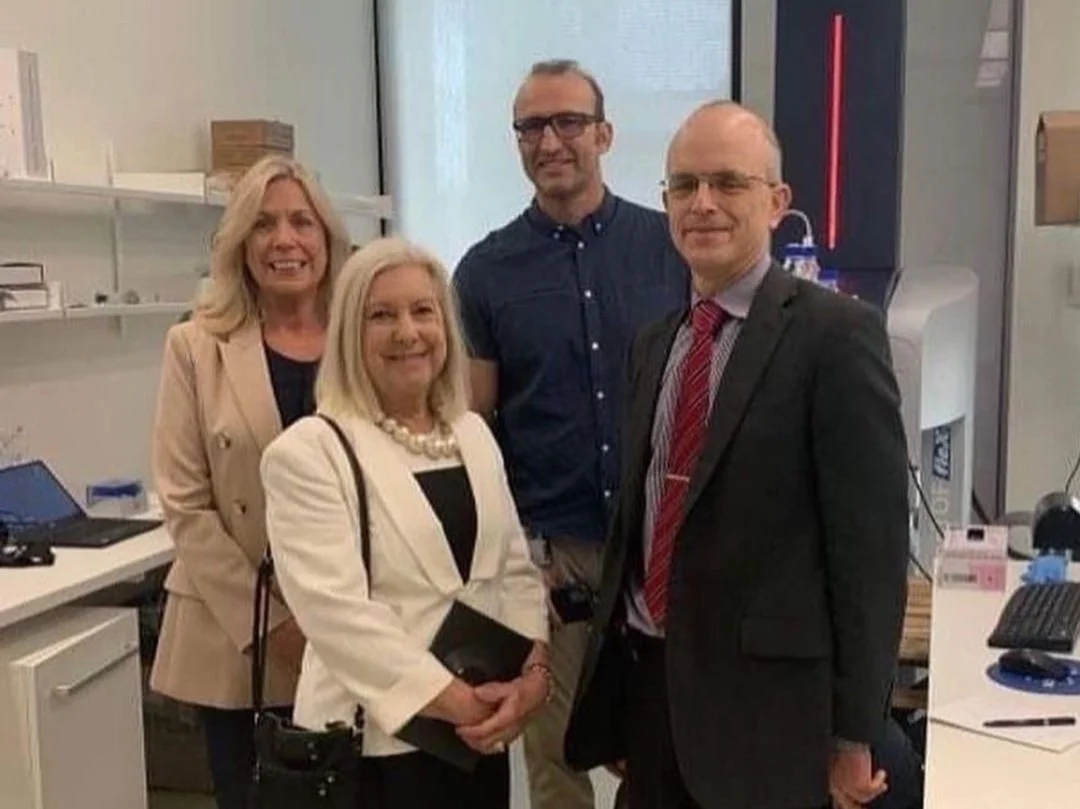Early Detection of Ovarian Cancer Could Save Thousands of Lives
Every year, over 1,800 Australian women are diagnosed with ovarian cancer. Tragically, nearly 1,000 will die from the disease.
That’s one woman lost every eight hours—largely because ovarian cancer is often detected too late.
Unlike breast or cervical cancer, there is no reliable screening test for ovarian cancer. Most diagnoses occur only after symptoms worsen and the disease has progressed to a more advanced stage, when treatment is less effective.
The Silent Symptoms of Ovarian Cancer
Ovarian cancer is often referred to as a “silent killer” because its early symptoms are so easily missed or dismissed.
Common symptoms include:
Persistent bloating
Pelvic or abdominal pain
Changes in bowel habits (e.g. constipation)
Urinary urgency or frequency
These symptoms are common to many non-cancerous conditions. And while only a small number of women with these symptoms have ovarian cancer, persistent or unusual changes—especially in women over 50—should never be ignored.
Current Testing Is Not Enough
At present, women with symptoms may undergo:
A pelvic ultrasound
A CA125 blood test
But there are limitations. The CA125 test is only elevated in about 50% of early ovarian cancer cases, and it can be falsely elevated by other conditions like menstruation, fibroids, or endometriosis.
This makes it unreliable as a screening tool, especially for early-stage disease.
Diagnosis Stage Matters
The stage at diagnosis dramatically affects survival rates:
Stage I – 5-year survival rate: 89%
Stage II – 66%
Stage III – 34%
Stage IV – 18%
Sadly, most women are diagnosed at Stage III, when the cancer has already spread, and the survival rate is less than 50%.
We desperately need a better way to detect ovarian cancer—before symptoms appear.
The Hope: A Simple, Accurate Blood Test
Researchers Professor Peter Hoffman at the University of South Australia and Professor Martin Oehler at the University of Adelaide are developing a groundbreaking blood test through the biotech company OncoDX.
This new test is designed to:
Detect ovarian cancer at Stage I
Be simple and non-invasive (just a blood sample)
Be inexpensive to process
Be highly accurate, with very few false positives
This research could lead to the first effective population-wide screening test for ovarian cancer.
What Makes a Good Screening Test?
For a test to be used for population screening, it must be:
Accurate – high sensitivity and low false positives
Affordable – suitable for large-scale use
Simple – like a routine blood test
Scalable – effective across diverse populations
The test being developed by OncoDX meets these criteria and could revolutionise ovarian cancer detection.
Why the Letitia Linke Research Foundation Supports This Work
At the Letitia Linke Research Foundation, we are proud to support local, world-leading research with the potential to save lives.
We are a volunteer-run charity committed to improving outcomes for women through early detection and better treatments.
But we need your help.
Get Involved
Here’s how you can make a difference:
Donate to support this critical research
Share this blog to raise awareness
Sponsor or attend a fundraising event
Talk to your GP about any persistent symptoms
Follow us on social media and spread the word
The Science Is Here - Now We Need Your Support
Together, we can bring early detection out of the lab and into the lives of women who need it most.
Help us change the future of ovarian cancer—because early detection matters.

